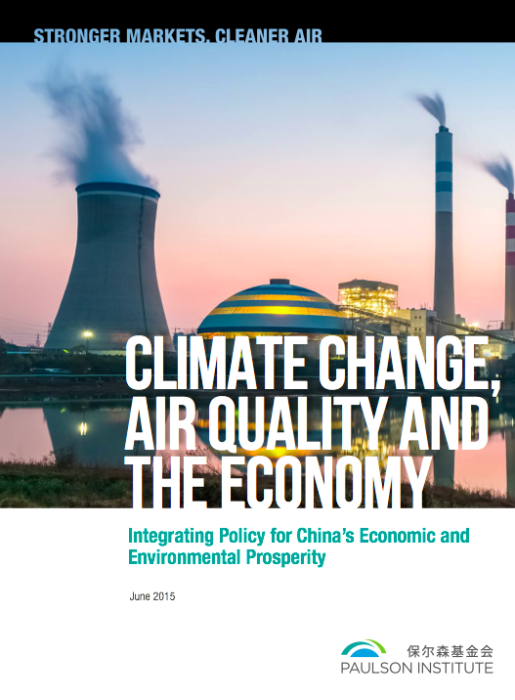Our Beijing-based Climate Change & Air Quality Program team share what they are reading and talking about

We kicked off our Stronger Markets, Cleaner Air series with the release of the background report Climate Change, Air Quality and the Economy: Integrating Policy for China’s Economic and Environmental Prosperity. This report sets the stage for a series of more detailed papers with specific policy recommendations to be released throughout 2015, focused on the theme of strengthening markets to create cleaner air. We’re looking at policies related to power sector reform, electric power demand response, carbon emissions trading and building energy disclosure. Last week and this week, in a series of Paulson Dialogues, we were busy discussing the draft papers with experts and policymakers in Beijing. We are now starting to refine the papers before publishing them in July.
The Chicago Tribune published a retrospective essay on the city’s history with pollution, with reminders that China’s current troubles are an echo of what the United States experienced—and that problems can be solved. “Opened windows meant soiled curtains and filthy sills. Brand-new buildings quickly weather as the caustic pollution ate away the stone,” the article reads. Chicago residents called it “the smoke nuisance.” Lest we forget: pollution once blanketed not only LA, which is the most often cited example, but in almost every other major metropolitan area.
An article in China’s Economic Information reports that the 13th Five-Year Plan will include major new standards for industrial emissions of PM, Nox, Sox and VOCs. The article quotes Minister of Environmental Protection Chen Jining as saying that there is a large gap between the amount of time it will take to resolve China’s pollution problems (15-20 years in some cases) and the public’s expectation.
A policy document issued by the National Energy Administration said that Beijing’s Yanqing County would receive energy for heating from renewables in the future. The announcement said that Yanqing would be a pilot site for the larger effort to make a regional energy transition in Jing-Jin-Ji and alleviate air pollution. A large portion of the energy for this pilot will come from nearby Zhangjiakou, which is abundant in wind energy. (Chinese)


